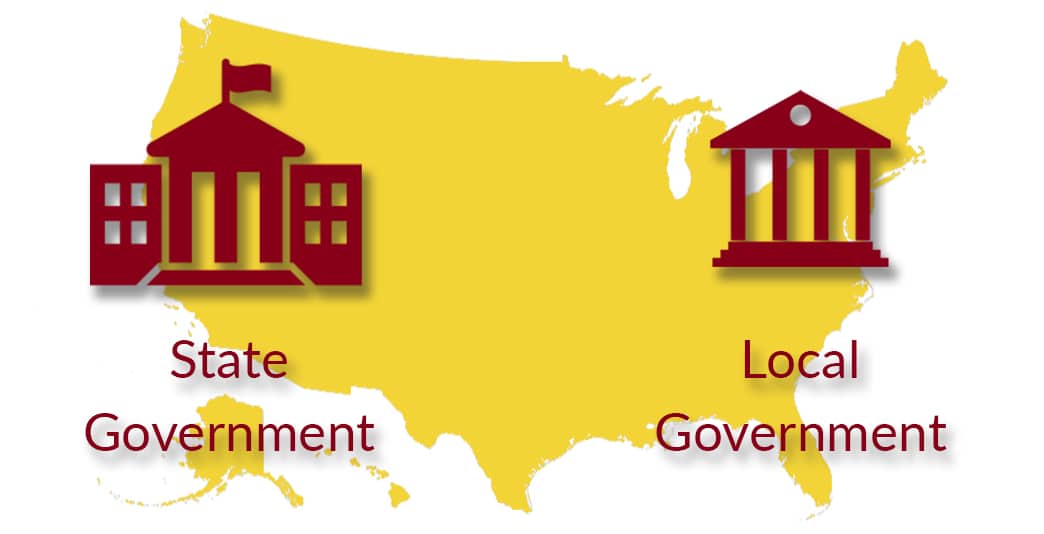Home » benchMARK’S » There’s No Place Like Home Rule
There’s No Place Like Home Rule
By Mark Lanier
All politics is local. Except when it isn’t.
As we’ve seen all too often, cities, counties and school districts across the nation that attempt to address the distinct concerns of their constituents are often thwarted by state legislatures. According to a report by the National League of Cities, those battles occur in four key policy areas of local governance: economic, social, health and safety.
These face-offs over control, revenue or simple philosophical differences tend to gravitate toward laws that limit a local government’s ability to regulate businesses and protect civil rights – things such as paid sick leave, minimum wages, employment discrimination and property taxes. The controversies extend to fights over municipal bans on plastic bags and Styrofoam containers.

Consider one of the more interesting preemption cases that bubbled up from south Florida. Last year, officials in Key West passed a city ordinance to ban the sale and use of certain sunscreen products, based in part on scientific research showing that the chemicals oxybenzone and octinoxate, common ingredients in many sunscreens, have negative effects on corals and other marine life.
While seemingly just an issue of environmental responsibility to protect a local resource, the reaction from Tallahassee was swift. Sunscreen manufacturers such as Johnson & Johnson, which makes the popular Neutrogena and Aveeno products, aligned with a coalition of dermatologists to introduce a state law to block any local regulation of over-the-counter drugs and cosmetics. In January, and without any debate, the Florida Senate passed legislation that did just that.
While this scenario can play out anywhere, let’s look at what Florida lawmakers are now contemplating that dives further into the deep water of litigation.
The opioid epidemic has killed more than 10,000 Floridians and devasted the lives of countless more. Cities, counties, school districts and public hospitals have been on the front lines to address the epidemic, and several have filed lawsuits against the big corporations responsible. Now Florida’s state lawmakers – and even the Attorney General’s office – are coming together to promote legislation that would prevent local governments from filing any lawsuit in matters of “statewide concern” and placing a cap on fees for outside legal counsel.
If allowed to pass, it’s reasonable to expect that experienced and competent attorneys will be reluctant to represent local Florida officials in complex litigation such as we see with opioid claims. The result will be a continued erosion of the legal rights of local taxpayers, and even greater influence of corporate interests at the state level. That’s a prescription that favors the powerful over the people.
We’re also seeing an effort to cap legal fees in Oklahoma, prompted by the more than $825 million secured in settlements and a judgment in the state’s opioid litigation, a victory for both the state and local governments which I’m familiar with firsthand. Perhaps counterintuitively, a bill later introduced in the Florida Senate proposes a cap of $10 million on the Attorney General’s outside legal fees (regardless of any award), as well as limits on hourly fees and legislative oversight of proposed legal contracts and settlements.
This is less a matter of state-over-local preemption and more about control. It shows a desire by legislators to control what the state’s top lawyer is doing, along with a desire by special interests to control what the state’s legislators are doing.
I think it’s reasonable to assume that if these restrictions had been in place at the time, the outcome of lawsuits that support the efforts of health care providers, teachers, and families in battling opioids would never have happened.
While the attempted undermining of local governments by legislative forces continues to spread, there is some data to suggest that cities, municipal leagues and other advocates are finding success in pushing back. A recent report by the Local Solutions Support Center and National League of Cities found that while preemption efforts are increasing, those efforts are also being turned aside at a higher rate through – you guessed it – effective litigation by local governments and the intervention of the courts.
It’s difficult to deny that some of our nation’s biggest challenges are tasked to our local governments, which are closest to the people, places and priorities they serve. I hope we pay close attention to the political divide found on both sides of the preemption debate, and the forces that govern our ability as attorneys to gain justice for those closest to home.
benchMARK’S is a regular column on law and life from Mark Lanier. Mr. Lanier is regarded as one of the top trial attorneys in the United States. He’s also an author, teacher, pastor and expert storyteller.


